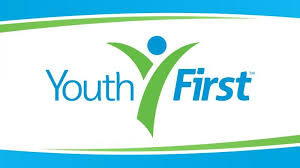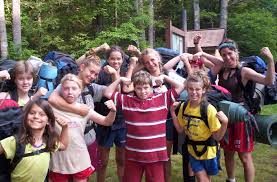
INDIANA – The perfect summer camp experience can allow children to explore new friendships, engage in new activities, and gain new insights. For children with attention deficit hyperactivity disorder (ADHD), summer camp can also be a valuable source of self-assurance. Campers often feel more confident venturing out of their comfort zones when they are part of a supportive group of kids and adults. However, we can’t always count on everything to go according to plan during camp.

Unfortunately, each year, there are stories from parents whose ADHD children were asked to leave camp for various reasons. Maybe parents were unaware that the camp was unprepared to support their child until it was too late. When a camp lacks an understanding of ADHD, there’s a chance campers may experience unfavorable outcomes. Often, these children are not required to participate in activities, and although they don’t usually cause trouble, they may wind up feeling isolated or sitting alone.
Suppose you’re curious whether a summer camp will serve your kids’ needs and interests. In that case, it might be beneficial to favor programs that involve physical activity, which can benefit the body and mind. As someone who has experience working in a summer camp setting, I have seen some children with ADHD thrive in this setting but have also seen some who have struggled.

Below are some questions that might be important to ask before enrolling your child in a summer camp:
1. What is the structure of the camp schedule for my child’s age group?
How much time do campers have to participate in free play or activities of their choosing? Some children with impulse control problems do not do well in unstructured camps, and “free time” is when they have the most challenging time.
2. Are campers required to participate in activities, or can they choose to sit out?
The ideal answer would be that they are strongly encouraged and supported to participate in all activities but are not forced to do so. Additionally, parents should be notified if their child is often sitting out of activities.
3. If my child needs some time to “decompress,” where would they do that?
Children with ADHD benefit when they develop self-soothing and calming strategies, which prove invaluable in moments of emotional dysregulation at school and home. Camps may have a special accommodation form where you can include some self-soothing strategies that may help your child. A camp should encourage its campers to develop these regulatory skills while ensuring they aren’t left out or forgotten.
4. What is the staff-to-camper ratio?
A summer camp’s staff-to-camper ratio is an important factor to consider. If this is your child’s first time attending camp, you might want to ensure they will have adequate supervision and attention from staff members who have experience working with children with ADHD.
5. How much time is spent on screen-based activities?
If your child likes a lot of screen time, less is better here. This will enhance their interactions with other children at camp.
6. What can I do to help my child succeed at camp?
Camp staff should know your child’s strengths and how to support them if they struggle. A good camp staff will appreciate parent transparency, proactive strategy ideas, and opportunities for collaboration. Things that are not helpful include holding off on your child’s ADHD diagnosis or scheduling a “medication vacation” to coincide with camp. Summer camp demands high attention, emotional regulation, and impulse control from children. If your child is taking ADHD medication during the school year, it might be a good idea to have them continue taking it during camp. Talk to your child’s pediatrician about what they recommend.

How the camp director responds to these questions should provide you with information about whether the camp is a good fit for your child. Additional resources on this topic can also be found at the website ADDitude.com.

Sophia Blaha, MSW, LCSW, is a Youth First Mental Health Professional at West Terrace Elementary School in Vanderburgh County, and Hailee Wolfe is a Youth First intern. Youth First, Inc., is a nonprofit dedicated to strengthening youth and families. Youth First provides 90 highly trained mental health professionals (primarily master’s level social workers), prevention programs, parent engagement coordinators, and bilingual support personnel to 125 schools across 14 Indiana counties. Over 52,000 youth and families yearly are served by Youth First’s school-based social work and community programs that promote mental health, prevent substance misuse, and maximize student success. To learn more about Youth First, visit youthfirstinc.org or call 812-421-8336.



